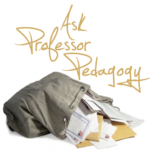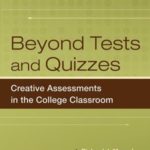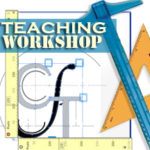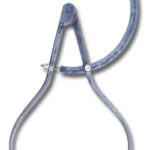‘Assessment’
Beyond the Essay: Making Student Thinking Visible in the Humanities
Oct. 14, 2013—by Nancy Chick Print Version Cite this guide: Chick, N. (2013). Beyond the Essay: Making Student Thinking Visible in the Humanities. Vanderbilt University Center for Teaching. Retrieved [todaysdate] from https://cft.vanderbilt.edu/guides-sub-pages/beyond-the-essay/. “We asked faculty to ask themselves the most important questions they could about student learning in their courses. How did they know that their students...
Episode 40 – From a Student’s View: AXLE Writing Requirements
Mar. 21, 2013—In this first installment of a two-part podcast, our CFT student reporter, Erin Baldwin, hears thoughts from a Vanderbilt junior about the Achieving Excellence in Liberal Education core curriculum (more commonly referred to as the AXLE requirements) that all students in the College of Arts and Science must fulfill. http://cft.vanderbilt.edu/wp-content/uploads/sites/59/cftpodcast/ep40_axle1.mp3 [MP3, 6 min 30 sec]...
Measurement of ‘Learning Outcomes’ Comes to Graduate School
Mar. 12, 2013—“I just know it in my bones” is the rationale some professors might give to explain how they know whether or not their students have learned, writes David Glenn in an article posted in the Chronicle of Higher Education. This article focuses in particular on graduate education, since even those programs that consist of more...
Ask Professor Pedagogy: Assessment Suggestions for Large Lecture Classes
Feb. 22, 2013—Ask Professor Pedagogy is a twice monthly advice column written by Center for Teaching staff. One aspect of our mission is to cultivate dialogue about teaching and learning, so we welcome questions and concerns that arise in the classroom; particularly those from Vanderbilt faculty, students, and staff. If you have a question that you’d like...
Thinking About Metacognition
Jan. 10, 2013—By Cynthia Brame, CFT Assistant Director I’ve been thinking a good bit about metacognition lately, which is kind of funny, if you think about it. Metacognition can be defined very simply as thinking about thinking, or more fully as by developmental psychologist John Flavell: “Metacognition refers to one’s knowledge concerning one’s own cognitive processes...
Ask Professor Pedagogy: Midterm Exams
Oct. 19, 2012—Ask Professor Pedagogy is a twice monthly advice column written by Center for Teaching staff. One aspect of our mission is to cultivate dialogue about teaching and learning, so we welcome questions and concerns that arise in the classroom; particularly those from Vanderbilt faculty, students, and staff. If you have a question that you’d like...
Strategies for Grading Workshop: Additional Resources
Sep. 13, 2012—CFT Graduate Teaching Fellow, Beth Koontz, offers additional resources on grading and assessing student work. The CFT recently hosted a teaching workshop on Effective and Efficient Grading focusing on the purposes of grading and how to grade in ways that help students learn more deeply and save time for the instructor. This post provides some...
From the Stacks…
Apr. 7, 2012—Beyond Tests and Quizzes : Creative Assessments in the College Classroom by Richard J. Mezeske From the publisher… Because the drive toward external assessment speaks almost exclusively in terms of standardized testing, we need to be reminded of the internal purposes of assessment: measuring learning for both student and teacher so that instruction can be...
Upcoming Event: Assessing Student Learning
Mar. 14, 2012—Join us for this upcoming teaching workshop! Assessing Student Learning Date & Time: March 20, 4:10-5:30 Facilitator: Nancy Chick, Assistant Director Format: Teaching Workshop Audience: Faculty, Graduate and Professional Students, Post-docs, and Staff This session will equip participants with strategies to better understand what and how their students are learning—or not learning. ...
How do you know what your students are learning—or NOT learning?
Mar. 5, 2012—Which assessment techniques do you find particularly effective or efficient? How do you select when and how often to assess your courses? What then does deep learning in a course look like? And how can it be achieved? The CFT is hosting two events later this month that address these questions and more. In the...









